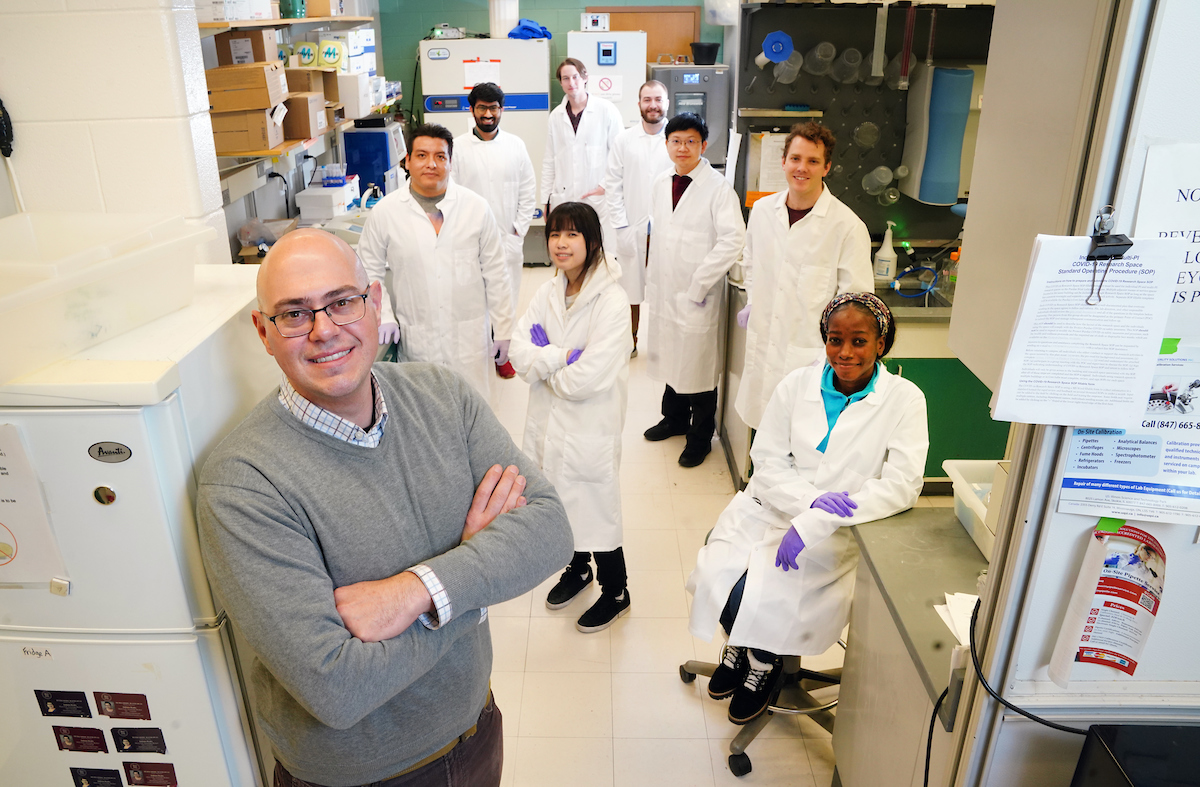Lindemann appointed Philip E. Nelson Endowed Chair in Food Science
Purdue University Provost and Executive Vice president for Academic Affairs and Diversity Jay Akridge has approved Food Science Professor Stephen Lindemann’s appointment to the Philip E. Nelson Endowed Chair in Food Science.
Lindemann, whose research is focused on the gut microbiome, genomics and metabolism, said he is humbled by the honor and deeply grateful to Robert Scholle, whose initial gift to the college established the chair in honor of Philip Nelson, and to the selection committee for the opportunity.

“Carrying even a small part of the food science legacy of Phil Nelson, even just occupying the chair bearing his name, is no easy task,” Lindemann said. “I hope to make him, the Department of Food Science and the College of Agriculture proud in doing so.”
Senay Simsek, department head and professor of food science, said the Philip E. Nelson endowment empowers the department, helping to fill important knowledge gaps and increase the availability and utilization of high-quality foods to the world's population.
“Dr. Lindemann is advancing promising, state-of-the-art research that has tremendous implications on the food industry and the world food supply,” Simsek said. “The Dr. Philip E. Nelson Chair in Food Science will help us solve today’s and future complex food systems problems, greatly enhance our students' educational experiences and help make our state, region and world a better place.”
Lindemann explains that the resources from the endowment will help support his gut microbiome research program, which has the goals to substantially improve the healthfulness and nutritive potential of foods for both humans and animals and to help stem the tide of chronic disease.
The chairship will support an entrepreneurial PhD student, Lindemann said, whose interests are in commercializing his lab’s fundamental science into technologies that change daily lives for the better.
Nelson founded the Purdue Food Science Department in 1983 and served as department head for 20 years. He received the World Food Prize in 2007 for his work on aseptic food storage.
Nelson retired from teaching at Purdue in 2010. The Food Science Building, which he helped design prior to its opening in 1998, was renamed in his honor as the Philip E. Nelson Hall of Food Science.






